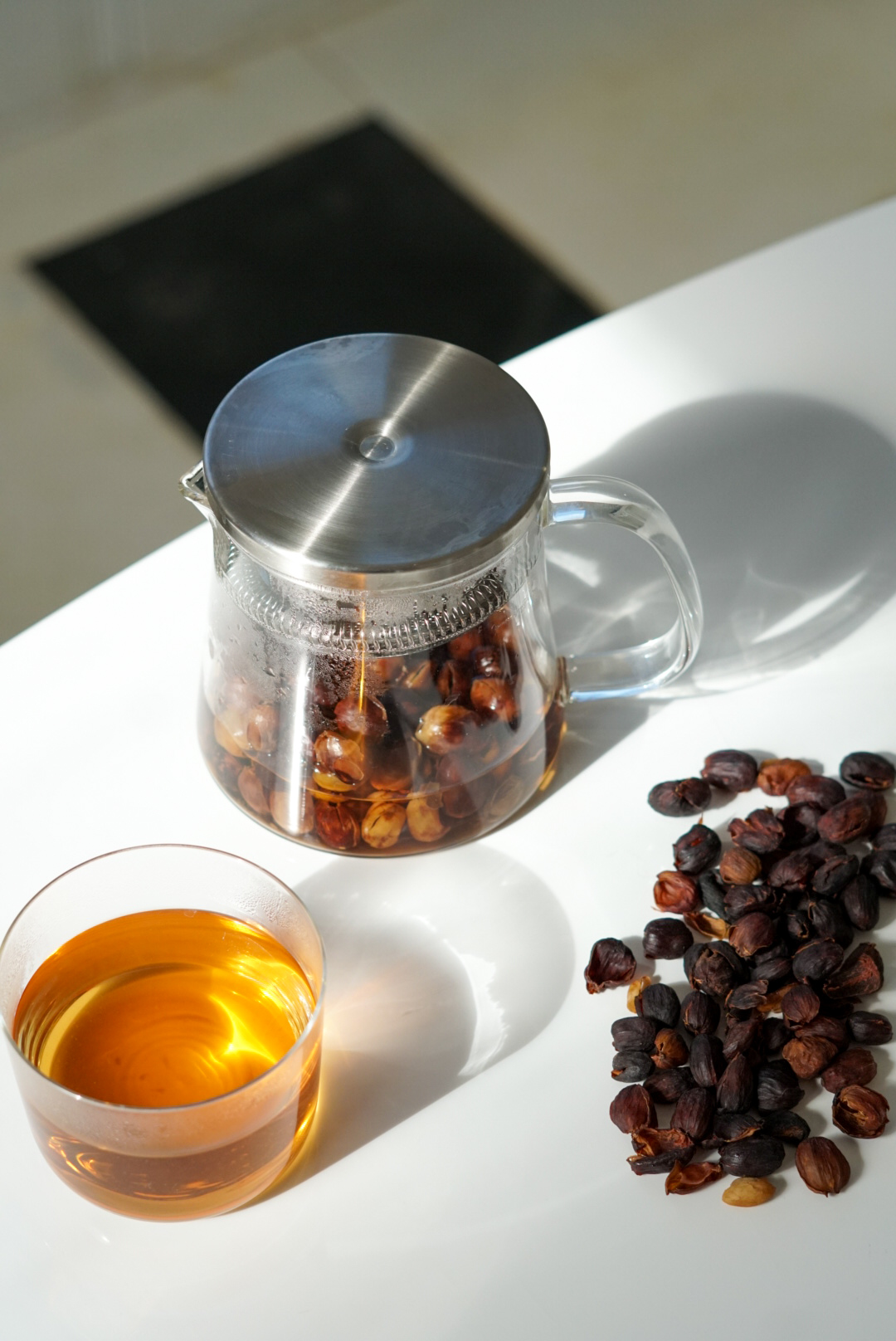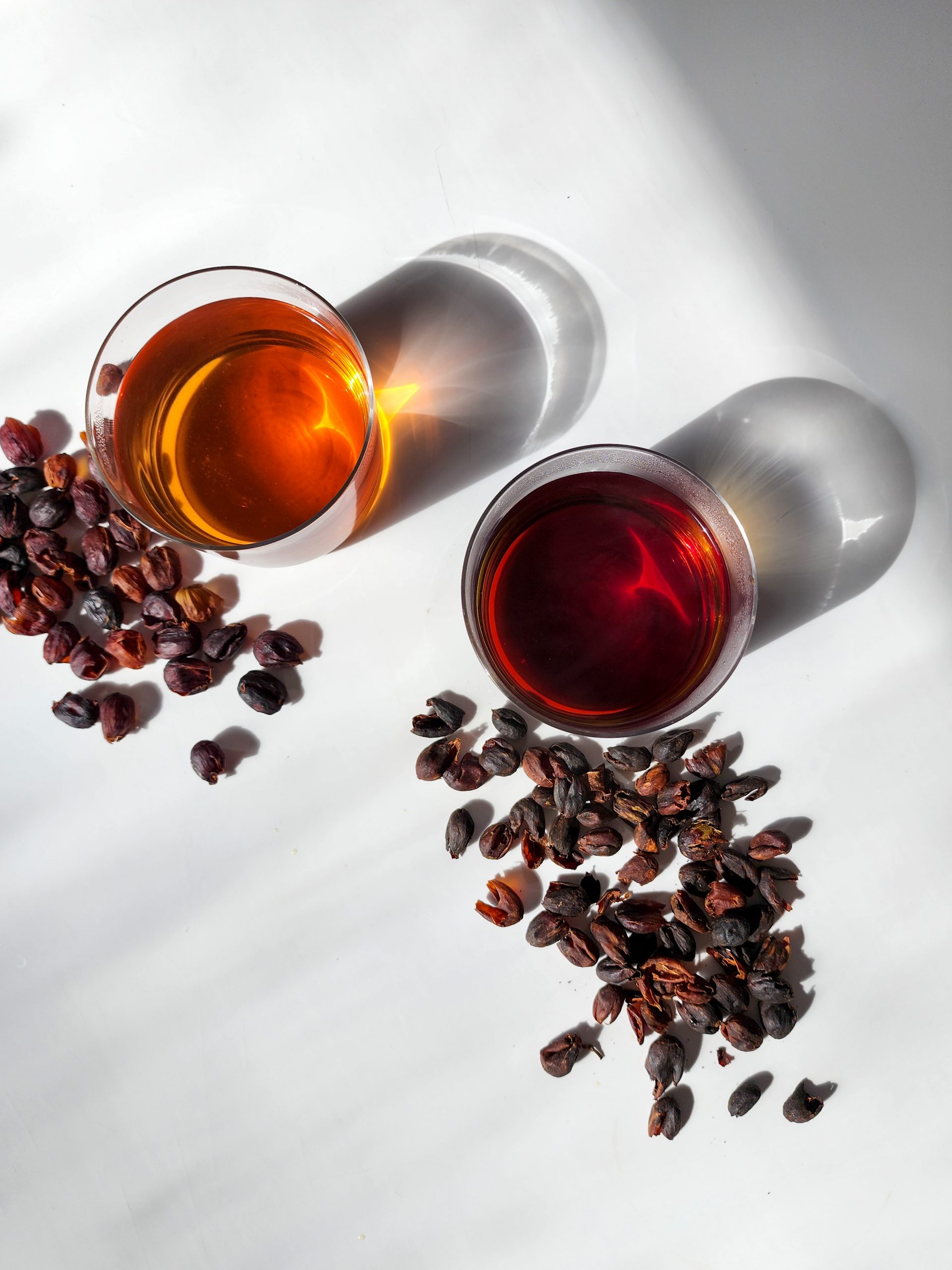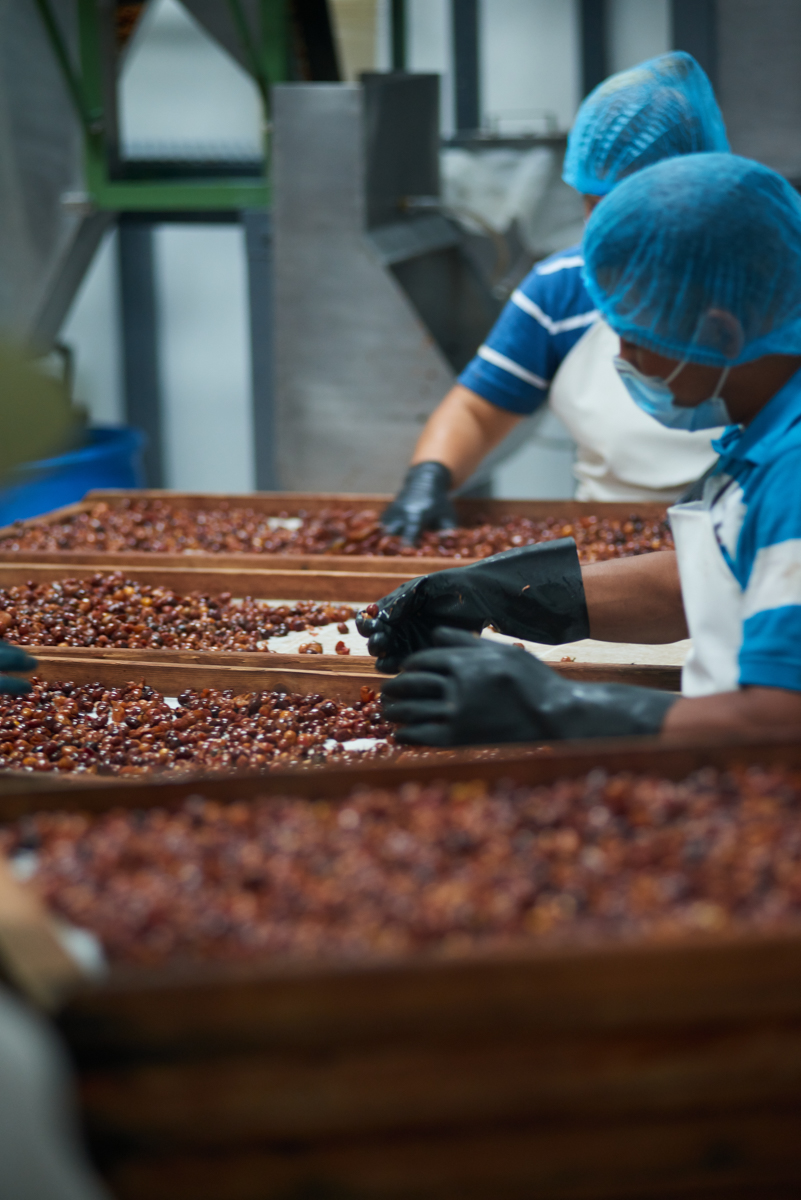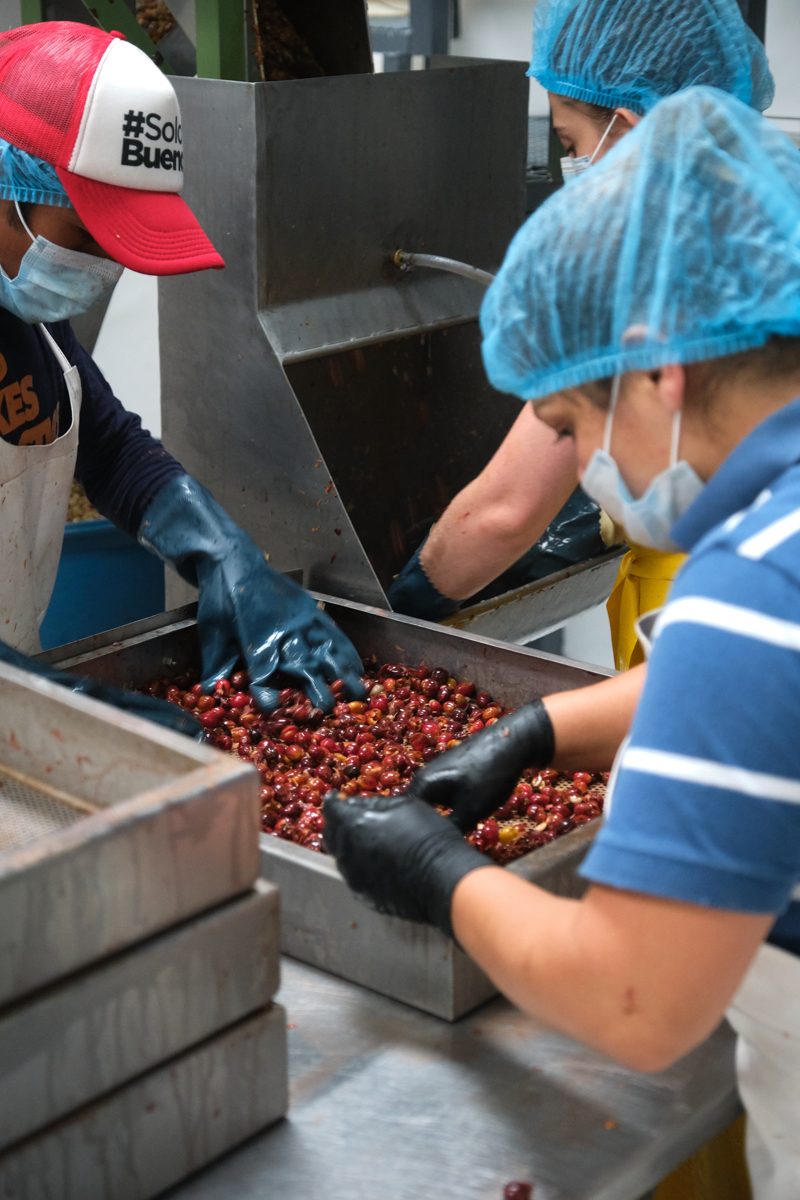
When coffee is processed, the layers of skin, fruit, and parchment are broken down and removed, leaving behind the seeds we roast and brew. Those discarded layers once provided life and protection to the seeds, but don’t have to all go to waste. The skin of the coffee cherry can be dried and sold as a singular product called Cascara.
Cáscara is a Spanish word that translates to peel, shell, rind, husk, and skin. Countless organic and inorganic objects have an outermost layer, so it’s important to note that this Spanish word isn’t exclusive to the coffee cherry. As this product has trended in interest over recent years, though, “Cascara” has become the moniker for dried coffee cherry skin.
This dried fruit skin can be brewed with hot water to make a tea-like beverage that carries the flavor of the dried coffee cherry into the cup. For those that have never tasted it, it has a tart, raisin-like flavor with a mild fruit rind bitterness that is fascinating on its own and can also be used as an ingredient in a mixed drink.

Specialty coffee shops have evolved into a morning convenience and a culinary experience. Our culture’s appreciation for fine food and drink has led cafes to curate menus that offer high-end coffees, specialty teas, seasonal signature drinks, and full-service food options. How does cascara fit into this service model?
Simply said, cascara is coffee. It’s a singular ingredient from a coffee tree. Seeing, touching, and smelling the skin that encases the seeds we’re so familiar with deepens our understanding of the plant. This tactile encounter with the cherry continues the education that cafes offer their customers. It provides another moment for questions to be asked, cultivating more trust between the barista and the coffee drinker. Ultimately, serving cascara places more impact behind the fact that, above all else, coffee is an agricultural product that must be carefully tended to if it is to become our everyday beverage. For producers, cascara can be another source of income rather than a byproduct. If producers sell their cascara, then less time and resources are being spent on disposing or composting. Offering cascara is one more small way cafes bridge the gap from producer to consumer.


Cascara is brewed like tea – steeped in hot water. The beverage is a unique expression of coffee with about a quarter of the caffeine. There is no standardized recipe to brew cascara, so we recommend you experiment with the cascara-to-water ratio to determine your desired concentration. We suggest brewing with a similar concentration to black coffee (1:16). For cafes, recipes can be scaled up or down as needed.
Hot Cascara Tea
Iced Cascara Tea
Batch Brew Cascara
You can even use your batch brewer for large quantities! Dose the dry cascara into a large water pitcher and run a brew cycle onto it. After the cycle is done, filter the cascara out through a strainer or toddy filter. Bottle the tea, refrigerate, and use for service.
Signature and Seasonal Drinks
The dried-fruit sweetness and fruit-rind bitterness of cascara are reminiscent of dark liquor, and that’s a great way to approach the ingredient when creating a signature drink. Cascara pairs wonderfully with citrus acids, spices, and fruit or sugar-browning flavors. Adding flavored syrup to cascara tea is a simple starting point for creating a unique drink. For more complex drinks, try brewing a cascara concentrate or creating a syrup.
Concentrate suggestion
You can brew cascara as concentrated as needed. I suggest starting with a 1-to-10 ratio and using small amounts of the concentrate as an ingredient in drinks.
Drink ideas using cascara concentrate
Cascara Syrup suggestion
There are two approaches to infusing cascara into a simple syrup. The first method is to make a simple syrup by boiling a 1:1 ratio of water and sugar until the sugar dissolves and then adding cascara to the hot syrup, infusing for 5-10 minutes before straining and bottling. The other method is to brew a cascara concentrate and then boil that concentrate with sugar to create the syrup. Add other ingredients to create a unique flavor for your menu!
Cascara syrup works wonderfully in fall drinks. Try it in a latte, chai latte, or apple cider.
Costa Rica Helsar de Zarcero Coffee Cascara Tea 19715
The coffee that contributes to this lot was specifically picked to become cascara. After the coffee was harvested and depulped, the cherry skins were washed, pasteurized, and dehydrated in a sterile facility. The intentionally in the cascara’s production results in a pristinely clean cup that reminds us of a crisp dry cider. You can see the impact of the processing in the look of the cup itself – it’s golden and transparent. This cascara is excellent on it’s own, or as a flavored iced tea.
Flavor Notes



Brazil Espirito Santo Fazenda Camocim Biodynamic Coffee Cascara Tea 18780
Brazil’s coffees are known for their heavy texture, deep sweetness, and nutty bitterness. This cascara emulates those traits when compared to the Costa Rica cascara. This Brazil cascara brews dark red, with a heavier red-fruit sweetness and an earthy finish. This offering would excel as a concentrate or syrup, bringing a strong cascara flavor to any drink of your invention. As a tea, the drinking experience changes drastically from hot to cool. The tea is heavy and sweet when hot transforming into bright and mouthwatering as it approaches room temperature.
Flavor Notes


Coffee Cascara brings ecologically and economically-conscious concepts to your menu while presenting something that might be brand new to your customers. Again, there is no standardized way to use Cascara. Enjoy it as a tea or use it as an ingredient! We think you’ll be surprised by its complexity, versatility, and potential for education among staff and consumers.